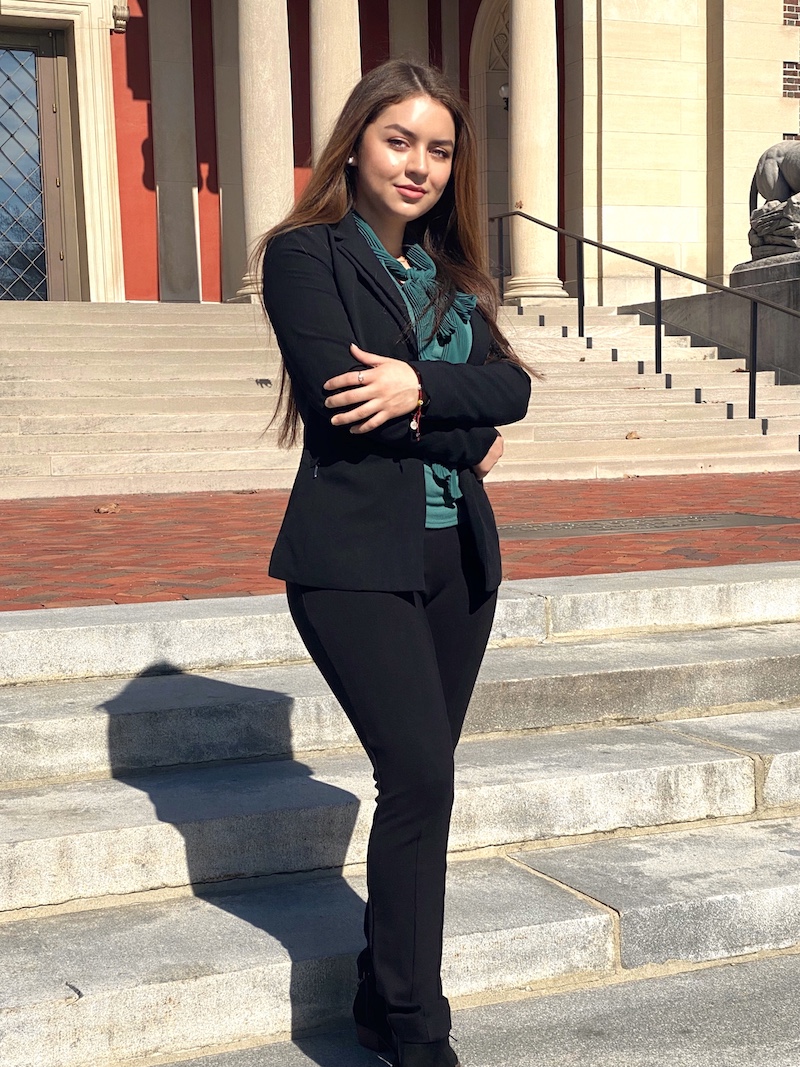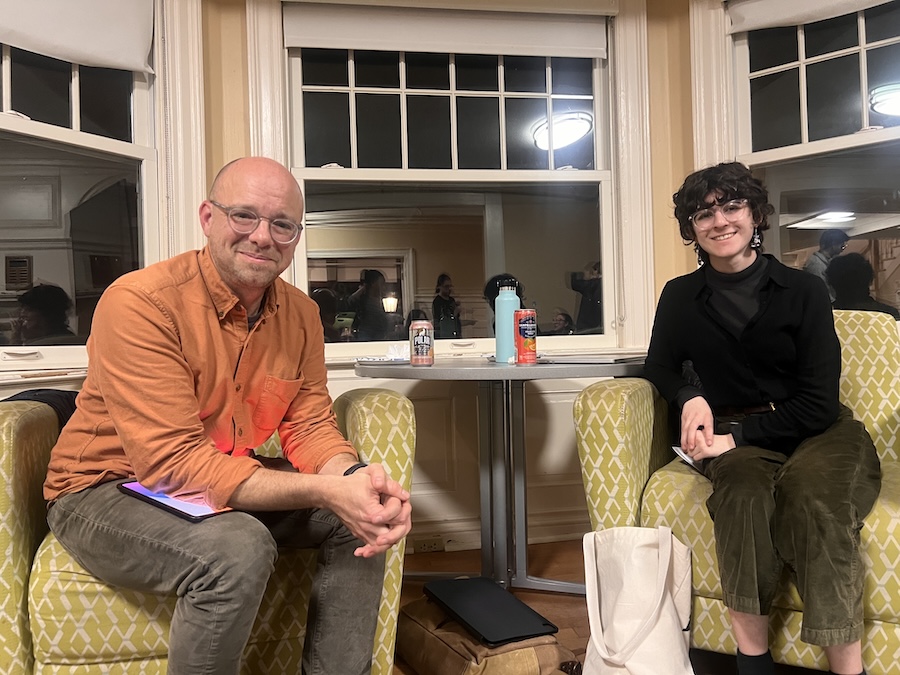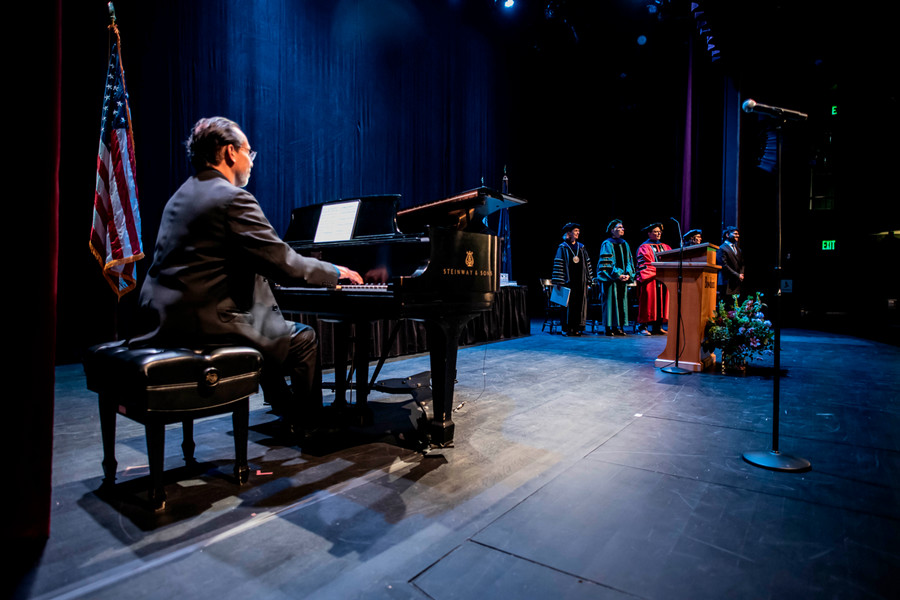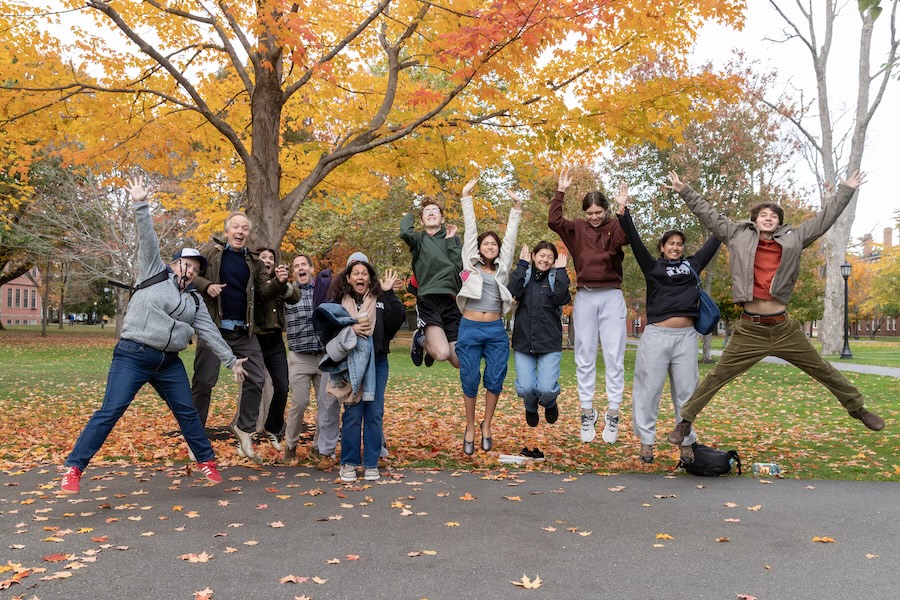From Alamos and South Tucson to Bowdoin and Beyond: The Journey of Kathleen Armenta ’21
By Rebecca Goldfine
When Armenta tells her life story, she begins when she was in her mother's womb, clinging to life. After being abandoned by their guide, to whom they had given their life savings, her parents walked for seven days across the Sonoran Desert to the United States. Her mother was four months pregnant.
"It's a miracle they survived," Armenta said. They settled in Tucson, where her mom gave birth to her first child.
Growing up, Armenta remembers waking up at 5:00 a.m. to share a plate of frijoles and tortillas with her family before her dad left to work at construction sites or to fix old cars. When she didn't have to go to school, she helped her mother clean homes or sell homemade tamales and empanadas at local swap meets.
Occasionally, strangers would denigrate her family by calling them mojados—wetbacks—or threaten them with calls to la migra, the border patrol.
Life was hard, made even harder after her family was burglarized at gunpoint in their home. Armenta was twelve at the time. She says they were initially too scared to call the police for help because of their legal status, and when they did, they were treated like criminals.
Yet despite the hardships, Armenta was an excellent student, and she loved learning. She became focused on going to a selective college, diverging from many of her peers who went straight to work after high school or attended a community college or public university.
She applied to Bowdoin—despite it being unfamiliar to many in her community—because of its strong government department. She hopes one day to be an immigration attorney and to help families like hers. After applying early decision, she was offered full aid.
The first few days after she arrived on campus in 2017 were heady and fun. "At first I thought I belonged here because of how hard I had worked to get here," she said.
She recalled watching a play with her classmates during orientation called Perspectives. Compiled of anecdotes from the first-years' application essays, the script is meant to show the diversity of the students' backgrounds. The very first line of the play happened to be Armenta's. This helped reinforce Associate Dean of Students Melissa Quinby's talk afterward, in which she stressed that everyone in the auditorium belonged at Bowdoin. And briefly, Armenta believed it.
But uncertainty began to creep in. And after completing her first year, she wondered whether to return for the next three.
"My Bowdoin experience taught me much more than being intellectually bold. Including the fact that not all education comes from books." — Kathleen Armenta
She turned to trusted mentors and advisors—her abuelitos (grandparents), parents, professors, and her host mother in Brunswick. They helped convinced her to stay. She also drew strength from mentoring other young people as they transitioned to college.
"Like those in the BIPOC, LGBTQIA, low-income, undocumented, international, disabled, and first-generation college student communities," she said. "There is nothing like helping others to give yourself a sense of self-worth. Sometimes I felt I belonged here; sometimes I didn’t, but I stayed."
A fear of failure also shadowed her. "To leave everything I had sacrificed..." she trailed off. "I was afraid to fail. And resilience is ingrained in me. Growing up, my family and I were afraid of not having enough to eat or a place to stay. I was afraid of having police take my parents away. Mentally, I was prepared for the insecurities of life. This prevented me from allowing myself to quit."
One of her advisors, Lisa Flanagan, the associate director of Bowdoin's Baldwin Center for Learning and Teaching, said one of Armenta's strongest attributes is her fortitude. "Her pluck and persistence have gotten her where she is and will take her far," she said.
"It took as much courage to go from Tucson to Bowdoin as it took for her parents to cross over the border," Flanagan added. "The culture shock was pretty profound."
Armenta describes a few of those shocks: "To begin with, the weather here was nothing like the dry desert of southern Arizona. I didn’t know my eyelashes could freeze—literally freeze—and have my mascara drip down my face as they thaw," she said. "Then there was the culture shock and the incredible demands of the classroom and roommates and homesickness, plus, a serious health issue for a time."
While her background sometimes made being at Bowdoin difficult, she also credits it for giving her strength. "My journey to Bowdoin has been filled with obstacles that I have been able to overcome," she said. "I am a first-generation, low-income student, the daughter of immigrant parents. I think you'll agree that that is an unusual background for a Bowdoin student."
Armenta will graduate May 29 with a major in government and legal studies and a minor in sociology. Her mother plans to travel to Brunswick to watch her daughter receive her diploma—on her own birthday. ("It's my gift to her," Armenta said.)
Armenta has already secured a post-graduation job as a financial analyst with PNC Bank in Pittsburgh, a step on her way to law school eventually, she said.
As her time at Bowdoin comes to an end, she says she has a message she'd like to share with her peers. "What is important is not where you come from, how much money you have, or the color of your skin, it just matters that we're all sitting in the same seats, reaching for the same degree, and receiving the same education.
"Bowdoin is home, and it has given all of us the resilience and courage to move forward and grow as a community," she said.



